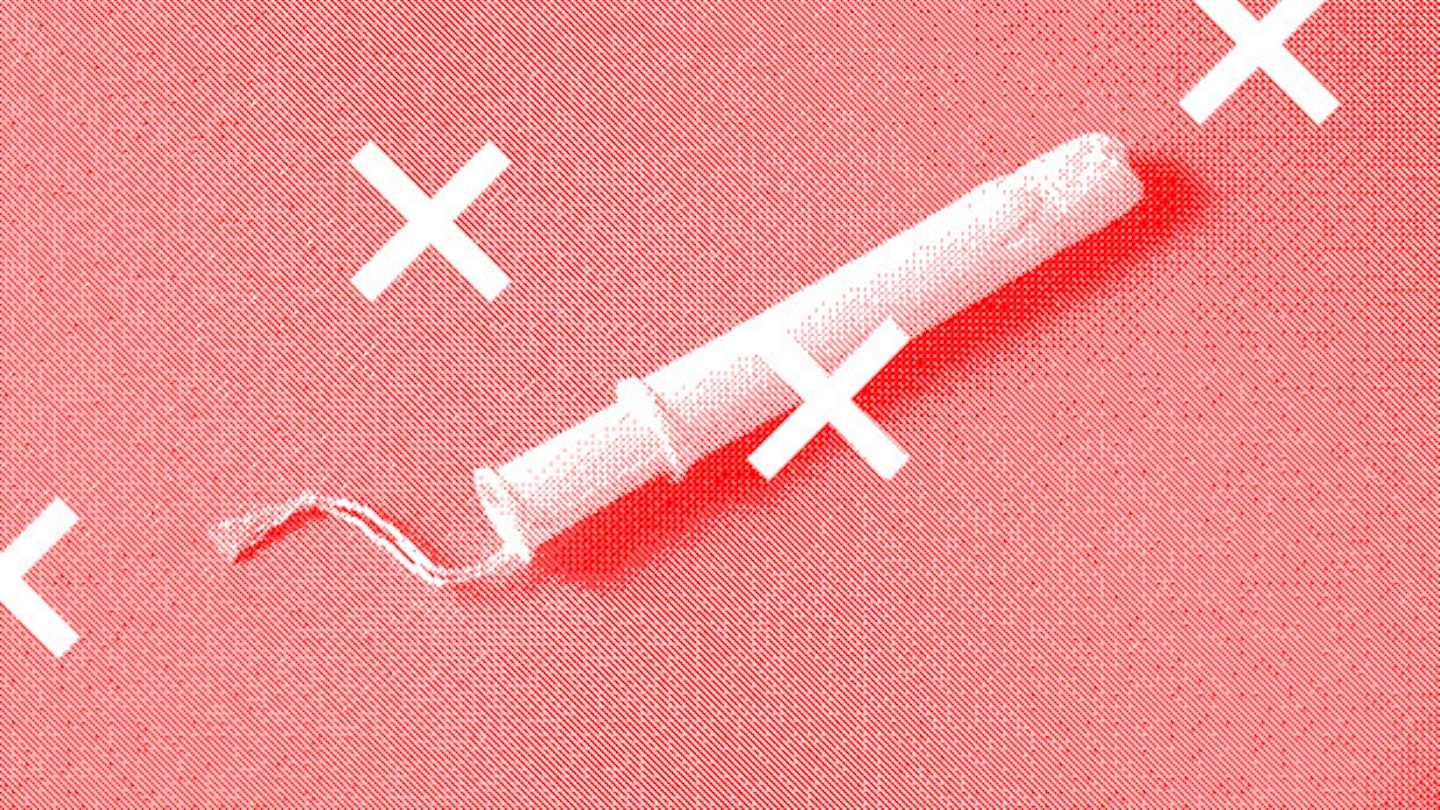I have had nearly 200 periods. That’s a lot of tampons and sanitary towels. Actually, let’s do that maths. Let’s say that I’ve been buying my own period paraphernalia since I moved out of my parents’ house at 18. That’s around 120 periods. 20 Tampax currently cost £2.60. A pack of daytime Always is around £3, the same for night-time Always. A Domino’s order for two is about £15. A packet of ibuprofen is 35p. So, £24 a month, for 10 years = £2,880. (OK, it’s closer to £1,000 if you exclude the pizza, but are you really going to come between a hormonal woman and her pizza?)
Like most privileged women, I hadn’t thought about ‘free bleeding’ until recently, when Kiran Gandhi ran a marathon while free bleeding. Free bleeding, as the name suggests, is to not use any sanitary protection during your period. Gandhi explains her reasoning extremely eloquently on her blog, and also recounts some of the whispered comments and stares from fellow runners.
I asked Gandhi how she found the experience, ‘Liberating, empowering, free, passionate, rocking, incredible,’ she explains. ‘We [women] self-criticise so much, and apologise so much. To be able to run a marathon and to be able to take care of my body in the way that was best for me – this felt really big.’
For Gandhi, it was ‘about that day’ and doing what felt right for her body as she put it through a punishing 26-mile run. ‘I’m not advocating for free bleeding,’ she tells me. ‘That act was about women being able to do what is best for them at all times, instead of prioritising the eye comfort or social comfort of others.’
Jessica Dalton, who free bleeds when she can, tells me, ‘I love free bleeding! Physically, it’s so much more comfortable – towels rub and make me raw and achey. Emotionally, I feel it’s a political statement about loving my body and all the amazing things it does. It feels natural to just let it flow rather than trying to eliminate it.’ However, she acknowledges that free bleeding in public can pose problems. ‘I don’t think it would ever work at my office sadly – I don't even bare my unshaven legs there! It would be perceived not only as gross, but also unprofessional.’
Blood can be kind of gross, whether you’re squeamish or not, and menstrual blood has a unique power to freak people out. All of the women I speak to emphasise that menstruating is still seen as something ‘shameful’ that needs to be kept hidden. Perhaps free bleeding can help end that stigma.
Ghandi writes on her blog about recognising that being able to buy and use clean, hygienic sanitary products is something that many women around the world can’t do. UK-based campaign The Homeless Period is currently trying to rise awareness of the problem for women on the street and Ghandi notes that only 12% of women in India use tampons or sanitary towels. A lot of girls drop out of school when they start their periods, because they lack access to sanitary protection.
I asked Dr Eleanor Draeger, a Consultant in Genitourinary Medicine, if there are any medical concerns around free bleeding. ‘There is no medical reason not to practice free bleeding that I can think of, but there are certainly practical issues,’ she replied. ‘Blood stains most fabric that it comes into contact with, and there is a significant risk that the blood on heavier days of the cycle would soak through multiple layers of clothing and could therefore also stain fabric on chairs or sofas. This could be problematic at home or work and on public transport. In addition blood can develop a bad smell once it is exposed to the air, so frequent changes of clothes would be necessary.’
The practicalities can be tricky, Dalton tells me, ‘In my own home, no problems: I pop a towel down and feel really comfy. It’s not so easy elsewhere, principally because of people’s reactions, but also because I don’t want to trash other people’s stuff. I did accidentally bleed on a friend’s car and I felt awful. Subsequently, I only fully free bleed in my house, but I also do it at the beginning and end of my cycle wherever I go, just using pants that I don't mind staining!’
There are less extreme options, too: namely the Mooncup or similar, which has a small up-front cost and then can be washed and reused. Dr. Draeger says, 'If people are worried about either the environmental impact of using tampons and sanitary pads, or the small risk of Toxic Shock Syndrome, then I would recommend they use a menstrual cup. There are several varieties, with the most well-known being the Mooncup. There has been a randomised controlled trial comparing tampon use to menstrual cup use. The satisfaction score was higher in the menstrual cup group than the tampon group, and 91% of the menstrual cup group said they would continue to use it and recommend it to their friends.’
The last word should go to Gandhi for bringing these issues into the public eye. ‘Just think, in the past 100 years we have only had three innovations in relation to women’s periods – a tampon, a pad and a cup. All are fine; none are amazing solutions. Think of this as a business opportunity – if I told someone that there are approximately three billion people who are looking for a better solution to this problem, we would have period innovation everywhere! But we don’t talk about it, so the solutions don’t come!'
Like this? Then you might also be interested in:
Follow Eleanor Turney on Twitter** @eleanorturney**
This article originally appeared on The Debrief.
